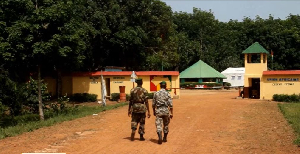The observation by Institute of Democracy Governance (IDEG) that political parties in the country have placed too much premium on campaigning and winning elections at the expense of developing and implementing public policies and programmes is an irrefutable fact. The evidence is overwhelming, hence citing examples will be a superfluous exercise.
Regrettably, that posture of politics by the parties has relegated to the background an obvious public responsibility of fashioning out effective policies that will strengthen service delivery to the citizenry and contribute to raising living standards as laid bare by the story.
But this trajectory of politics in Ghana must be broken since it is not only parochial, but also inimical to the promotion of the ends of social justice. Politics is not about winning elections, it is about using scarce state resources judiciously to solve the fundamental survival needs of the elected in order to maximize their welfare.
All stakeholders, political parties, governance institutions and civil society, among others, need to come together to address this self-serving and counterproductive manner of politics in this country. We of Public Agenda commend IDEG for bringing the issue onto the front burner.
A related matter to the style of politics in issue is four-year governance structure which we have practised since the inception of the Fourth Republic. It has been argued by many, including ex-President John Agyekum Kufuor that the four-year tenure of a president, which in turn drives almost all activities of political parties in this country, is too limited. President Kufuor proposes a five-year term, arguing that such a period will afford a newly elected leader a relatively reasonable period to prosecute his/ her vision.
The tenure of office of the president is a constitutional matter, and until that is amended, all of us have to work within that time frame.
Be that as it may, we are of the view that the focus of politics has to change if our nation is to move forward in leaps and bounds relative to progress and development.
Politics of Sunday, 10 August 2014
Source: Public Agenda












